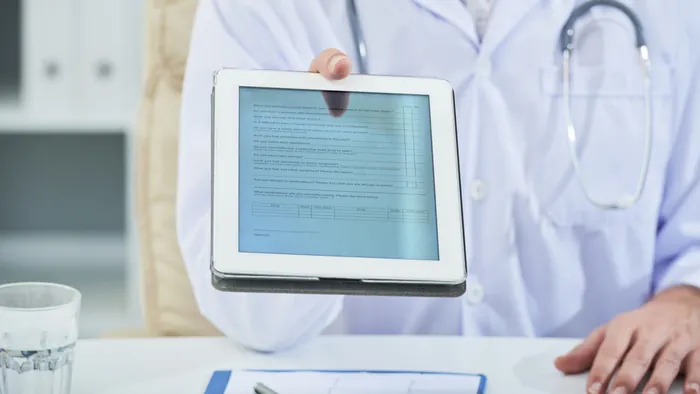
The introduction of the electronic patient record (EPR) in Switzerland has raised many questions. Like: which healthcare professionals are required to offer the EPR? In this article, you’ll find all the key information about EPR obligations.
Is the EPR mandatory for my practice?
According to the Federal Act on the Electronic Patient Record (EPRA), the EPR is mandatory for:
- Hospitals
- Birthing centers
- Nursing homes
- Newly established doctors
- Newly established outpatient care institutions
However, even if you don’t fall into these categories, you can still choose to offer the EPR to your patients and help simplify their healthcare journey!
If you’re a doctor already in practice and billed under compulsory health insurance (AOS) before January 1, 2022, you are not currently legally required to join an EPR community.
By when must you offer an EPR? Key deadlines:
Here are the deadlines for EPR adoption:
- Hospitals (including rehabilitation and psychiatric clinics)
- Mandatory since April 15, 2020 (KVG, art. 37, para. 3)
- Birthing centers
- Mandatory since April 15, 2022
- Nursing homes
- Mandatory since April 15, 2022
- Newly established doctors / outpatient institutions
- Mandatory since January 1, 2022 (KVG, art. 35, para. 2, letter n)
In short, all of the above must already be offering an EPR.
Do I need to join a reference community for the EPR?
Yes! Since early 2022, changes have been made for doctors and medical institutions under compulsory health insurance. To receive a new license, they must now prove they are part of a certified EPR reference community. This also applies if you are opening a new practice in another canton or establishing a new facility in a new location.
But don’t worry — not everyone is affected. If you were already licensed before 2022 and aren’t changing locations, you have nothing to do. The same applies to outpatient care facilities that stay in the same place, even with a change of ownership. And if you join an already licensed institution, you’re also exempt.
Is the EPR useful for me as a healthcare professional?
Even if you’re not yet required to join a reference community or use the EPR, you may want to consider it if you fall into one of the following categories:
- General practitioners
- Medical specialists
- Nursing professionals
- Pharmacists
Doctors are most impacted by the EPR since they’re often responsible for their patients’ overall care. Nurses frequently collaborate with doctors and contribute valuable data to patient records. Pharmacists who use the EPR help their patients by reducing administrative exchanges. While other professionals like therapists and lab technicians have limited access, the EPR is still useful.
For example, as physiotherapists, you gain real value from using the EPR. Say goodbye to delays in receiving key documents like surgery or radiology reports — you’ll have direct access to what you need.
If you work in a laboratory, you may not need to consult the EPR, but uploading test results helps streamline patient care.
Tips for offering the EPR to your patients
Swiss patients can choose whether to join the EPR. Here are some tips to help them set up their account securely.
Support your patients in creating their EPR
Patients often turn to their healthcare providers for help when setting up their EPR. Here are ways you can assist:
- Encourage them to visit support desks in many cantonal hospitals.
- Refer them to cara.ch for full online setup.
- Guide them directly through the process — you may even be eligible for compensation via the cara program.
Inform your patients about security measures
EPR security is a top concern. To open an EPR, patients need a certified electronic ID (e-ID). In French-speaking Switzerland, this could be a SwissID, Vaud-ID-santé, GenèveID, or TrustID, depending on the canton.
Upcoming EPR changes — who’s affected?
The Federal Council has laid important groundwork for EPR expansion. In summer 2023, it launched a full revision of the EPRA, now under public consultation and widely supported. It aims to clarify the roles of federal and cantonal governments and secure long-term funding. Ultimately, the EPR s set to become mandatory throughout the healthcare system.
In addition, everyone living in Switzerland and covered by compulsory health or military insurance will automatically receive an EPR — unless they explicitly opt out. Access will be via a government-issued e-ID for secure authentication.
No matter your current obligations, setting up an EPR is a great step toward digitizing your medical practice!
Sources
- Federal Office of Public Health (FOPH) – Electronic patient record statistics
- dossierpatient.ch – EPR overview
This article was produced in partnership with cara.